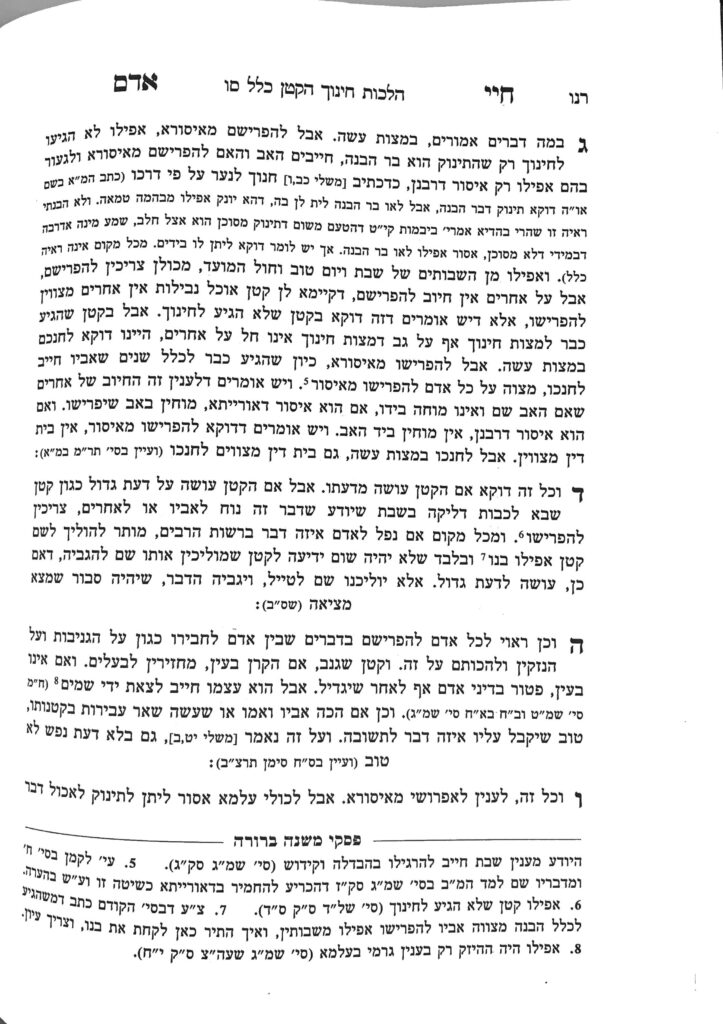We are beginning siman 3, where the Chayei Adam discusses mitzvos lo saasei. There are two differences between mitzvos asei and lo saasei as they apply to chinuch. The first is that the age of chinuch begins much earlier than it does for mitzvos asei. (Feeding a child issur directly is a different discussion.) the second difference is the possibility that the chiyuv chinuch does not just apply to the father, but to other adults as well. This opinion is a machlokes, which we will see more about later. The machlokes is centered around the assumption that transgressing a mitzvah lo saasei is worse than neglecting to fulfil a mitzvas asei.
The Chayei Adam begins siman 3 by writing that the first two simanim regarded mitzvos asei. The Chayei Adam defines that chinuch for mitzvos lo saasei begins when a child is able to comprehend that when a parent says no to a certain action, the parent does not mean to say no to just the present moment, but no to performing the action in the future as well. However, until a child is able to comprehend such a concept, there is no chiyuv chinuch on mitzvos lo saasei.
The Magen Avraham brings a proof to this age of chinuch. In the parentheses, the Chayei Adam writes that he disagrees with the proof of the Magen Avraham, but agrees practically with the halachic definition. The Chayei Adam writes that, in his opinion, there is no possible proof to this definition, but it is a sevara that concept of chanoch lana’ar al pi darko necessitates that chinuch be implemented at logical times in the child’s life where they will be able to assimilate what they are being told..
The Chayei Adam adds that the chiyuv to prevent a child from transgressing a lo saasei applies even on mitzvos derabanan, including chol hamoed.
However, according to the first opinion, only the parents have a chiyuv to stop them. According to the second opinion, there may be others obligated to stop them. We will discuss this opinion further in the next shiur, be’ezras Hashem.
Summary
The chiyuv chinuch for mitzvos lo saasei begins when a child is able to remember that if a parent says no to a specific action, they cannot do it in the future either. This definition applies to mitzvos deoraysa and derabanan alike..



